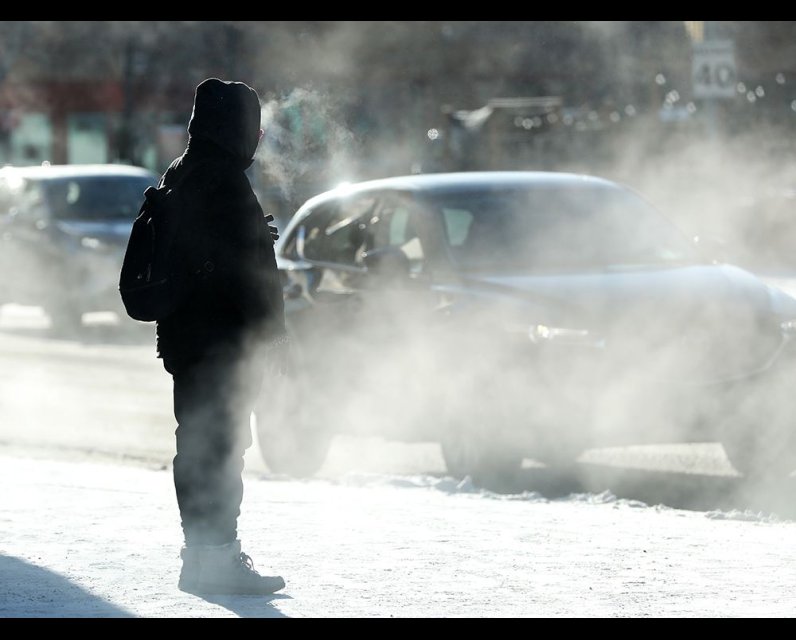Stay informed
Polar vortex could make a white, but frigid Christmas in Canada this year: report

If you’re among the Canadians hoping for a white Christmas this year, there’s good news and bad news.
The good news is that some forecast models point to conditions favourable for snowfall.
The bad news is that it’s due to the Arctic polar vortex, which could also bring extremely cold temperatures this holiday season.
Using information from the European Centre for Medium-Range Weather Forecasts (ECMWF) and Global Forecast System (GFS), weather researcher Andrej Flis from Severe Weather Europe recently highlighted an atmospheric warming event in late November that could result in frigid polar air moving south in mid-December and lingering for up to two weeks.
For those unfamiliar, the ever-spinning vortex of cold atmospheric winds is a normal part of the planet’s climate, just as is its counterpart over the Antarctic.
During the winter months, as the vortex strengthens with more cold air in the stratosphere, the polar jet stream in the troposphere shifts northward to keep it stable.
While it will often weaken at times in the winter, Flis said a burgeoning high-pressure anomaly near the pole in November could create a sudden stratospheric warming (SSW) event — when air temperatures increase well above normal in the atmospheric layer seven to 50 kilometres.
When that happens, the vortex falters, the jet stream takes on a different shape and the colder air is pushed out. Depending on weather patterns, it may spill into middle-latitude parts of Canada and the U.S. more accustomed to milder conditions, resulting in extreme cold and heavy snowfall. The timing, he noted, is happening earlier than normal.
Such was the case last January and again in March, though the latter had less severe weather outcomes for most.
“It’s extra cold, it’s got a duration to it and it’s crisp,” explained David Phillips, senior climatologist emeritus with Environment Canada. “It doesn’t even have to set a record; it’s just so bone-chilling cold that everything kind of stops and then what wears you down is the duration.”
Flis is cautious in his predictions and notes that not all SSW events produce cold and snowy surface weather.
Phillip didn’t have access to the weather models Flis used, but said, “this is about as good as science gets for something like this so far in advance.”
“And he’s got it right, and I don’t think he also overstated the situation,” he told National Post in an interview.
Phillips explained that, like weather in general, not all perturbations to the vortex will behave the same way, and this current one could very well have its own “character or personality” at ground level.
Warming temperatures in Canada and whether the continent is experiencing a La Niña or El Niño year are also factors, but he said the opposite climate patterns affected by the Pacific Ocean temperature have become less reliable predictors in recent years due to climate change.
“Those things have changed the playing field, too, so that’s another factor that has to be always worked into these recurrent things,” Phillips explained.
The approaching winter will be of the La Niña variety, which typically means colder temperatures and more snow out west, and more snow for Eastern and Altantic Canada.
It’s much too early to say where in Canada the polar vortex blast may arrive, but Flis predicts a northerly flow from Western Canada down into the U.S. and slowly moving east across the continent with no mountains to block it.
“It doesn’t stop at the border. There are no tariffs on this kind of thing,” he said, teasing that “Americans will blame Canada” for the cold snap.
Once it ends, however, Phillips said there’s still a long winter ahead.
“It doesn’t mean if we get this thing in December that we won’t get one in January or February. Sometimes we could have two or three.”
He also wants Canadians to know that not every extended period of snow is related to the polar vortex.
“It’s just cold air travelling on the jet stream and it comes south and then freezes for a week or two weeks and then it disappears.”
Our website is the place for the latest breaking news, exclusive scoops, longreads and provocative commentary. Please bookmark nationalpost.com and sign up for our daily newsletter, Posted, here.

Comments
Be the first to comment